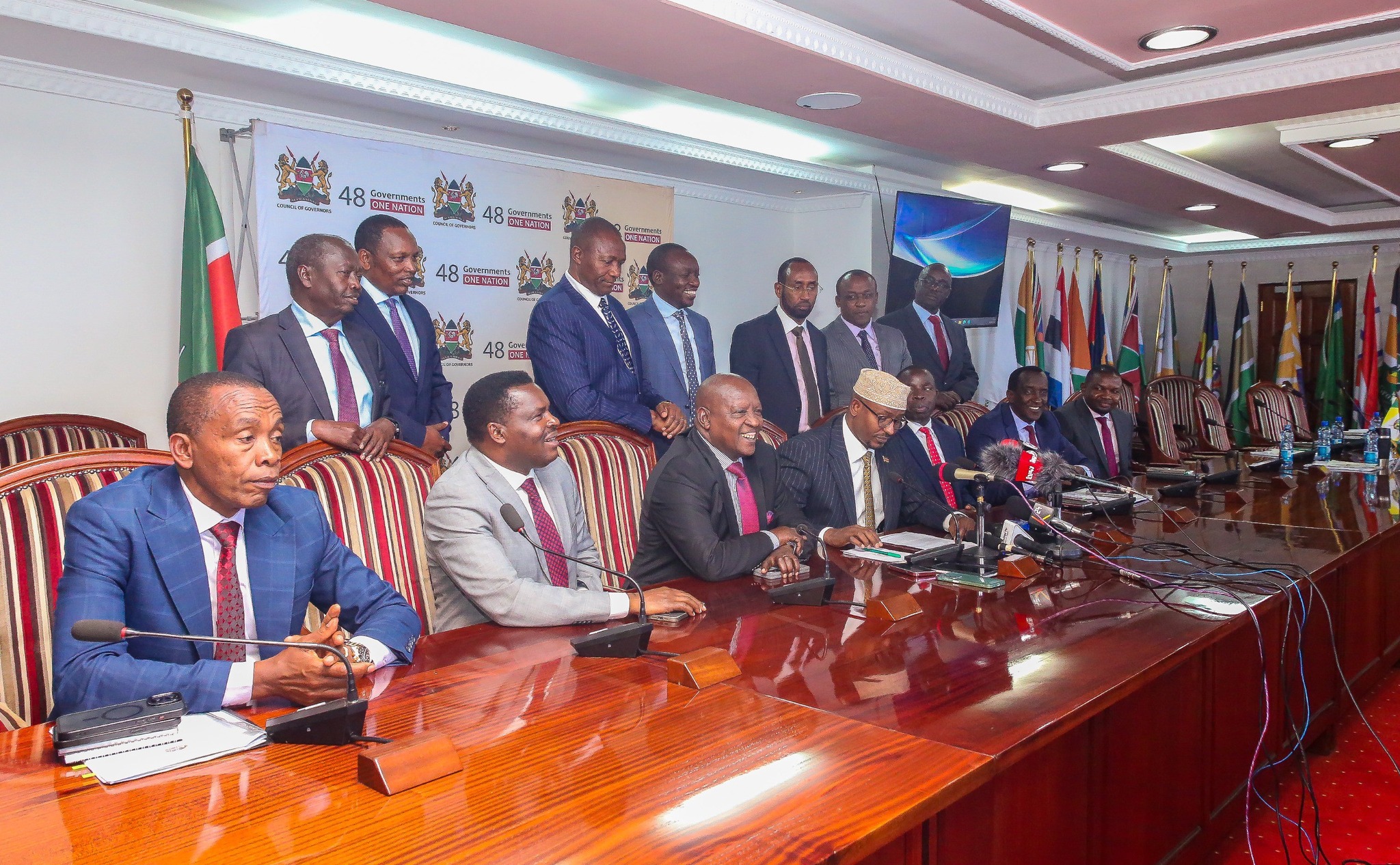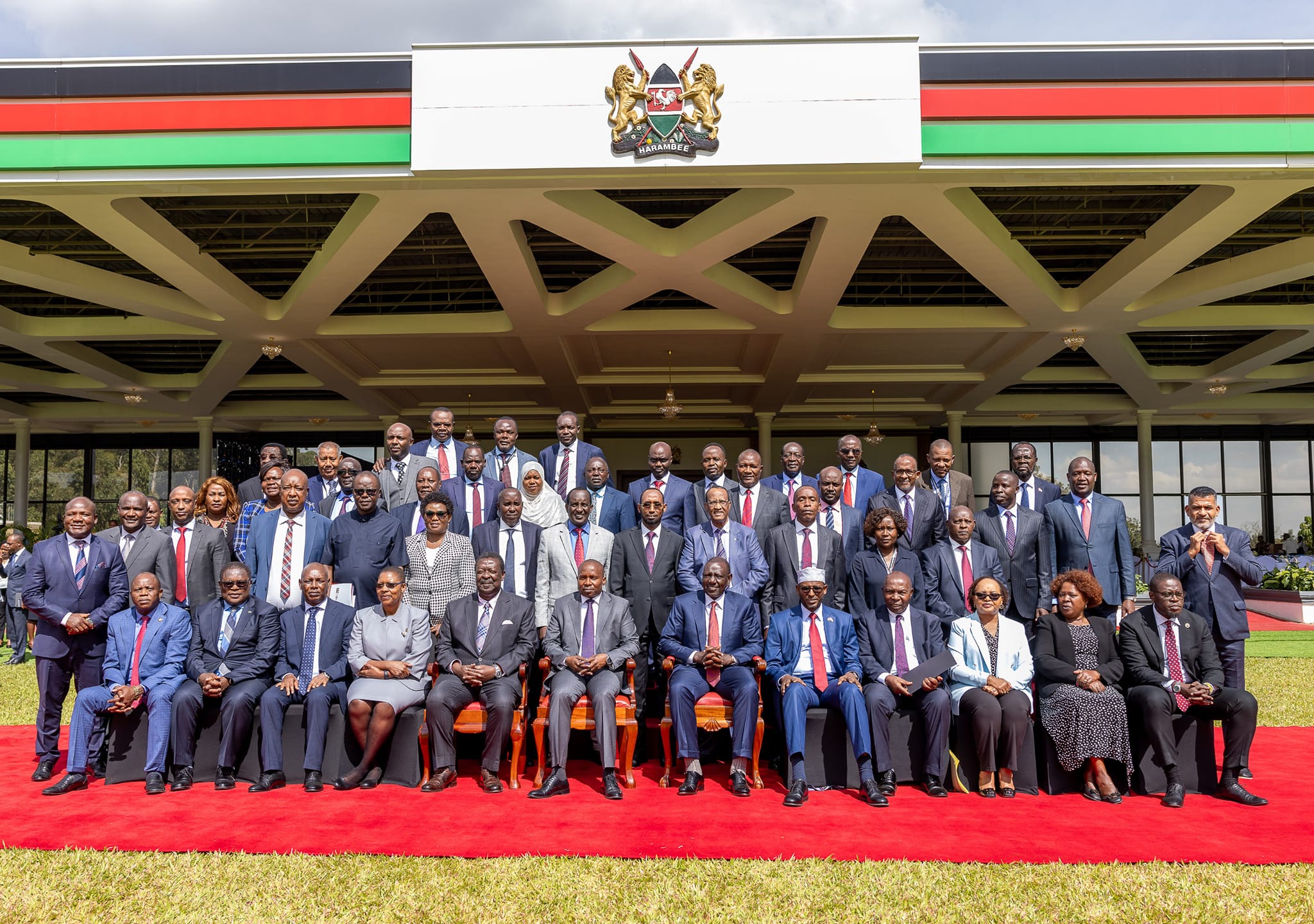A heated debate over Kenya’s devolution system has reignited, with calls to reduce the number of counties sparking sharp criticism from Mohammed Hersi, a John Maxwell Certified Speaker and Trainer.
In a detailed statement, Hersi dismissed the narrative that Kenya’s 47 counties are excessive as a “smokescreen” that distracts from the real issue: pervasive corruption at both county and national levels.
Hersi argued that the focus on reducing counties is misleading, pointing out that counties receive only 15% of the national budget, while the national government retains a staggering 85%.

“The pertinent question is not whether the number of counties is excessive, but how the remaining 85% of the budget is spent, especially as more functions are devolved,” he said.
He emphasized that dissolving counties cannot be justified on cost grounds when the majority of public funds remain centralized.
The debate gained traction following remarks by prominent figures, including former Prime Minister Raila Odinga, who, during Katiba Day celebrations, claimed that Kenya is “too tiny” for 47 devolved units, comparing the number to the United States’ 50 states.
Similarly, legal scholar PLO Lumumba, speaking on NTV’s Fixing the Nation, argued that the 47 counties are unsustainable and have “ethnicized” the country, advocating for a reduction to 14–18 counties.
Lumumba criticized the bloated administrative structure, including governors, deputy governors, speakers, and deputy speakers, questioning its contribution to national growth.
Hersi, however, countered these arguments, calling the push to reduce counties a Nairobi-centric perspective that ignores Kenya’s diverse development needs.
“Such arguments disregard the reality that Kenya’s diversity extends far beyond Nairobi,” he said, noting that many counties were carved from former districts based on ethnic boundaries, such as Meru, Samburu, Turkana, Pokot, and Kisii.
Merging these counties with their historical rivals, he warned, would be impractical and divisive.
While acknowledging that corruption is a significant problem in counties, Hersi stressed that it mirrors practices long entrenched at the national level.
"County officials often emulate practices set at the national level, where corruption has been entrenched for decades,” he said, recalling how budgets were managed by district department heads under the old centralized system, akin to today’s County Executive Committee members.
Hersi’s solution is clear: rather than dismantling devolution, Kenya must hold corrupt leaders accountable through arrests, prosecutions, and imprisonment.
He criticized the Senate for “saving the corrupt from impeachment” and urged voters to take responsibility for electing ethical leaders. “Devolution is not the problem; the leaders and the voters are,” he asserted.
Echoing Hersi’s sentiments, Wilson Sossion, during Katiba Day, emphasized that reducing counties would not address corruption.
“Let us have a Damascus moment and unanimously agree to fight corruption. By doing so, devolution will bear true meaning and deliver benefits to the people at the grassroots,” Sossion said.
Hersi also cautioned against the logistical and financial challenges of reducing counties, noting that such a move would require a costly referendum.
"This is a sideshow. We should not fall for it. Let the IEBC focus on 2027,” he said, referring to the upcoming general elections.
Addressing Odinga directly, Hersi expressed disappointment with his stance against devolution, a system Odinga has historically championed.
“Baba Raila Odinga, I agree with you on many things, but when you start fighting devolution, the very model you have been fighting for, then I and many others would start doubting you,” Hersi said.
Despite these concerns, he remains optimistic about devolution’s potential to transform Kenya if corruption is decisively tackled.
As the debate continues, Hersi’s call to focus on rooting out corruption rather than restructuring devolution underscores a growing sentiment that Kenya’s challenges lie not in its governance structure but in the integrity of its leaders.
With the 2027 elections looming, the nation faces a critical juncture in ensuring that devolution delivers on its promise of equitable development.

